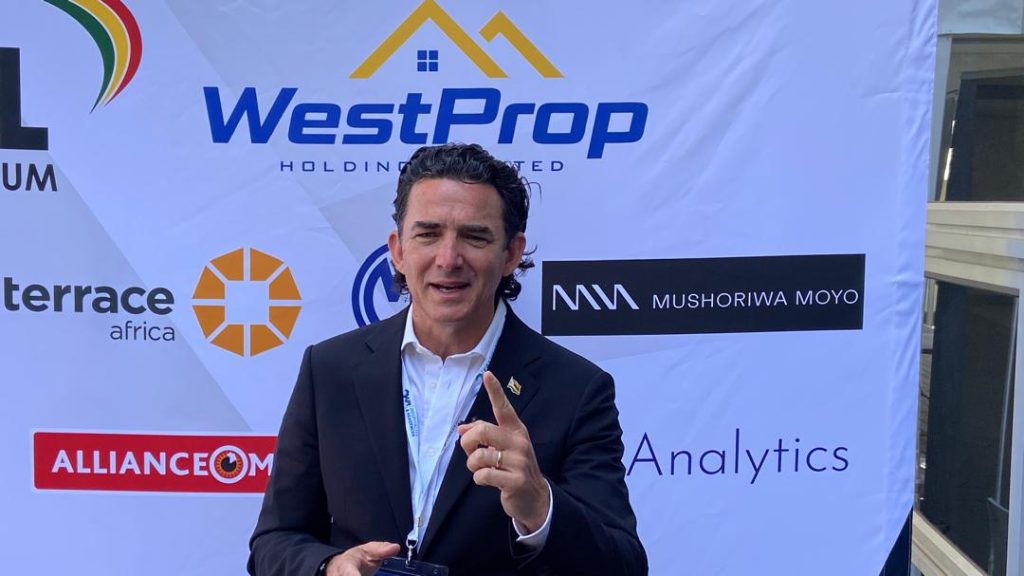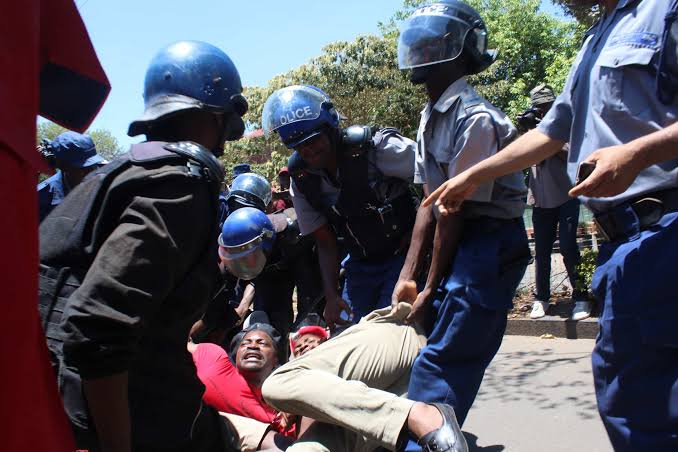By Court Correspondent
Harare – Property mogul Georgios Katsimberis has suffered a setback in his legal battle against fellow businessman Kenneth Sharpe.
High Court judge Maxwell Takuva dismissed Katsimberis’ application to privately prosecute Sharpe, finding it without merit.
Katsimberis had sought a certificate of Nolle Prosequi citing Prosecutor General (PG), Loice Matanda Moyo, as the respondent.
The businessman wanted Moyo to furnish him with a certificate of Nolle Prosecui in relation to the criminal complaint against Sharpe together with the full docket in the matter reported in CR 246-11-18 (CCD Ref DR 117-11-18).
This certificate (Nolle Prosecui) is typically issued when the state decides to drop charges.
Katsimberis had made a criminal complaint against Sharpe and police opened a criminal docket under CR 246-11-18, DR 117- 11-18.
When Sharpe was not prosecuted, Katsimberis instructed his lawyer to write to the PG urging her to prosecute him.
There was no response and the lawyer wrote again requesting a response.
On 19 August 2022, the PG responded advising Katsimberis to comply with section 16(2) of the Criminal Procedure and Evidence Act [Chapter 9:07] (The Code).
Applicant complied with section 16(2) and insisted on being granted the Nolle prosecui certificate.
However, nothing materialised prompting him to file the current application.
Katsimberis argued that since he has made several attempts to acquire this certificate without any success, the PG must be compelled to supply the certificate.
He further contended that after reporting Sharpe to the police, a docket was compiled and submitted to the Prosecutor-General’s (PG’s) office for consideration.
Prosecutor Chimbari, after assessing the evidence within this docket, declined to prosecute Sharpe, Katsimberis argued.
Notably, the docket implicated three individuals, but only one, John Van Blerk, had a formal warned and cautioned statement recorded.
Furthermore, Katsimberis argued that another NPA official, Justin Uladi, reviewed the docket and concluded that the State would defer prosecution until the resolution of a separate, unrelated matter involving the complainant in Sharpe’s case.
Katsimberis criticizes the PG for failing to provide explicit reasons for the decision not to grant a certificate of nolle prosequi, which would have allowed him to pursue private prosecution.
He argued that Sharpe’s absence from the jurisdiction coincided with the withdrawal of the case and his subsequent return.
Moyo, representing the State, countered Katsimberis’ claims through an affidavit by Justin Uladi, the Acting Deputy Prosecutor-General (Operations).
Uladi’s review of the docket revealed that it primarily implicated Van Blerk, with Sharpe and Pokugara Properties (Pvt) Ltd. not listed as formal accused persons.
Justice Takuva, however, ruled that the PG Moyo had not declined to prosecute Sharpe.
The judge clarified that the decision not to proceed with the case was related to another individual, John Van Blerk, and not Sharpe himself.
“In my considered view, Chimbari did not decline to prosecute the criminal matter against Sharpe for the simple reason that there was no such case presented to him.
“In any event, whatever decision Chimbari took or whatever words he wrote, relates to John Van Blerk and certainly not Sharpe.
“Therefore, the contention that prosecution against Sharpe was declined by Chimbari on behalf of the Prosecutor General is erroneous.
“Accordingly, l find that the applicant has failed to satisfy the requirements of s 13 of the Code,” ruled Takuva.
Katsimberis had argued that Sharpe was not prosecuted despite evidence supporting a criminal case.
He further claimed that the PG had provided inconsistent reasons for the delay in issuing the Nolle Prosequi certificate.
The court, however, found these arguments unconvincing.
Justice Takuva emphasized that the PG had not refused to prosecute Sharpe and that Katsimberis’ application was premature.
“Evidently, the Prosecutor General did not at any stage decline to prosecute Sharpe’s criminal matter.
“I find that this application was prematurely made.
“The Applicant ought to have implored the Prosecutor General to invoke her powers in terms of the Code to find out what was happening to the docket involving Sharpe, instead of jumping the gun.
“For the Prosecutor General to decline to prosecute at public instance he or she must have seen statements or affidavits on which a charge is based. In casu, this never happened,” said Takuva.
Justice Takuva concluded by dismissing the application with no order as to costs.



